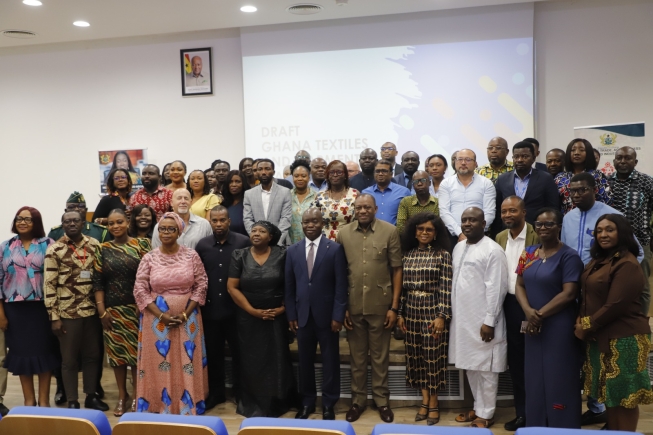The government is taking steps to restore the country’s once-thriving textiles and garments sector with the introduction of a new policy framework designed to position Ghana as a leading sourcing hub for ethical and sustainable apparel production in West Africa.
Spanning a 10-year implementation period, the draft policy proposes interventions across nine thematic areas, including infrastructure development, cotton cultivation, investment incentives, skills training and trade facilitation.
Among the proposed measures are the establishment of five world-class industrial parks, zero-rated taxes and duties for eligible investors, and the creation of a Ghana Textile Upgradation Fund (G-TUF) to support the modernisation of ageing machinery.
It also introduces a Cotton Development Fund to revive local cotton farming, and a Textile and Garment Sector Development Unit to coordinate activities, attract foreign direct investment, and serve as a one-stop shop for industry stakeholders.
Consequently, a three-day validation workshop has been organised to refine and validate the proposed measures to ensure the final policy reflects the country’s industrial realities and aspirations.
The workshop, which commenced in Accra on Wednesday, August 6, brought together key stakeholders from academia, the financial sector, the garment and textile industry, government agencies, labour unions and development partners.
The finalised policy, once adopted, is expected to provide the clarity, incentives and institutional coordination needed to rebuild the sector and reclaim its role as a cornerstone of the country’s industrial and economic development.
Alignment
Speaking at the opening of the workshop, the Minister for Labour, Jobs and Employment, Dr Abdul Rashid Hassan Pelpuo, stressed the need for alignment between industrial operations and national development goals.
“Textiles are a key enterprise that drive the development of any country. If a factory exists and does not follow the policy of the existing government, it means that the factory shouldn’t exist at all,” he said.
Dr Pelpuo also emphasised the importance of the sector in addressing youth unemployment. “This policy must not just be validated, it must be a catalyst to reset the economy, reset the mindset and reset the development path of Ghana,” he stated.
The Deputy Minister of Trade, Agribusiness and Industry, Samson Ahi, said the sector remained one of the country’s most historically significant and economically promising industries.
He explained that while Ghana once had a flourishing textiles and garments industry, only a handful of legacy companies currently remain in operation, with many running below capacity.
Mr Ahi noted that the draft policy was the result of extensive research, stakeholder consultations, and a clear-eyed assessment of global trends. He was confident that it would help address the current challenges through a coherent and competitive framework that would attract investment, boost productivity and position Ghana as a regional hub for ethical and sustainable apparel manufacturing.
